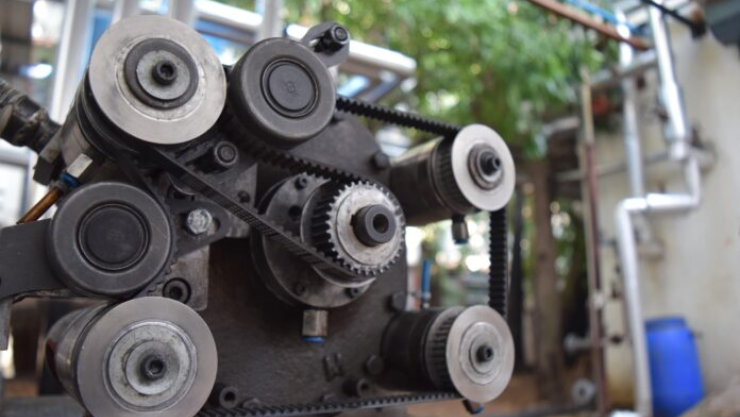
In India’s industrial landscape, steam has always been a silent workhorse, fueling everything from textiles and paper to pharmaceuticals and chemicals. Yet, despite its ubiquity, vast amounts of energy carried by steam are lost through conventional systems, escaping as heat instead of being put to productive use. Two innovators from IIT Madras—Professor Satyanarayanan Seshadri and engineer-entrepreneur Balachandran Raju—are on a mission to change that. Together, they founded Wankel Energy Systems, a deep-tech venture transforming waste into clean, usable power.
Professor Seshadri, co-founder and advisor, is a respected authority in thermodynamics and energy systems at IIT Madras. For decades, his research has spanned experimental studies, industry collaborations, and pioneering steam technologies. At Wankel, he anchors the scientific foundation. “As researchers, we often see opportunities where industry sees only routine operations,” he explains. “Steam has always fascinated me because it is indispensable to manufacturing, yet its energy potential has remained underutilized. Our mission at Wankel is to convert that overlooked potential into meaningful impact.”
If Seshadri provides the intellectual vision, co-founder and CEO Balachandran Raju ensures that vision takes shape on the ground. With a strong background in engineering design, Raju has transformed what began as a lab prototype into a patented, industry-ready product. His entrepreneurial drive steers the company’s strategy, partnerships, and market expansion. “Innovation cannot live in isolation,” he says. “Our job is not only to design technology but to ensure it works seamlessly for industry, delivers measurable savings, and supports a sustainable future.”
At the core of their venture is the Phoenix Expander, a rotary device that replaces conventional pressure-reducing valves in steam systems. While traditional valves release excess energy as wasted heat, the Phoenix Expander captures it and converts it into electricity. A single unit can offset more than 180 tonnes of carbon dioxide annually while saving up to ₹50 lakh in costs for a plant. “For industries, this is a rare win-win,” says Raju. “You save money while cutting emissions—without disrupting existing processes.”
The road to this breakthrough was long. What began as a Department of Science & Technology–funded research initiative has matured into a company holding three granted patents across India and the United States, with over twenty innovations secured as trade secrets. Recognition soon followed, with Wankel Energy Systems becoming the first Indian startup to reach the finals of the prestigious MIT Climate & Energy Prize.
In September 2025, the company secured US$1 million in pre-seed funding led by Shastra VC, joined by strategic angel investors. This funding is now powering pilot projects across Tamil Nadu in sectors such as textiles, food processing, chemicals, and pharmaceuticals. “We are starting close to home so we can work hand in hand with early partners,” Raju explains. “The goal is to prove performance on the ground and then scale across India and internationally.”
The potential is staggering. India operates more than 45,000 industrial boilers generating over 1.26 billion tonnes of steam annually. Wankel estimates that inefficiencies in current systems result in nearly ₹66,000 crore in energy losses every year. For Professor Seshadri, the challenge is not only commercial but environmental. “If we can solve this problem at scale, the impact on emissions and efficiency will be transformational,” he says.
Looking ahead, Wankel’s ambitions extend well beyond steam. The founders envision a suite of expanders and compressors for other fluid systems—compressed air, refrigerants, ammonia, and even hydrogen. “Steam is only the beginning,” Raju notes. “Our expertise lies in reimagining fluid systems. The same principles that power the Phoenix Expander can help us create a portfolio of clean-tech solutions for the industries of tomorrow.”
Investors share the optimism. Shastra VC describes Wankel as a venture that uniquely combines deep technical expertise with scalable commercial potential, led by founders who bridge academia and industry. For the startup, the funding is both validation of its approach and fuel for its roadmap.
Challenges remain, from scaling production to accelerating industry adoption, but the complementary strengths of the founders are proving invaluable. One brings the assurance of decades of academic research, the other the agility of a startup entrepreneur. Together, they exemplify how India’s research ecosystem can give rise to globally relevant innovation.
By unlocking the hidden energy in steam, Professor Satyanarayanan Seshadri and Balachandran Raju are building more than a company. They are shaping a vision of an industrial future where efficiency and sustainability align, turning waste into a powerful driver of progress.

